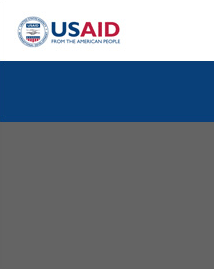- Where We Work
- Interactive Map
- Afghanistan and Pakistan
- Africa
- African Union
- Power Africa
- About Us
- How We Work
- Partners
- News & Information
- Power Africa Toolbox
- Where We Work
- Angola
- Benin
- Botswana
- Burkina Faso
- Burundi
- Cameroon
- Chad
- Côte d`Ivoire
- Democratic Republic of the Congo
- Djibouti
- Eritrea
- Ethiopia
- Gabon
- Gambia
- Ghana
- Guinea
- Guinea Bissau
- Kenya
- Lesotho
- Liberia
- Madagascar
- Malawi
- Mali
- Mauritania
- Mozambique
- Namibia
- Niger
- Nigeria
- Republic of Congo
- Rwanda
- Senegal
- Sierra Leone
- South Africa
- South Sudan
- Swaziland
- Tanzania
- Togo
- Uganda
- Zambia
- Trade and Investment Engagement
- Angola
- Benin
- Botswana
- Burkina Faso
- Burundi
- Cameroon
- Central Africa Regional
- Central African Republic
- Chad
- Côte d'Ivoire
- Democratic Republic of the Congo
- Djibouti
- East Africa Regional
- Ethiopia
- Ghana
- Guinea
- Kenya
- Lesotho
- Liberia
- Madagascar
- Malawi
- Mali
- Mauritania
- Mozambique
- Namibia
- Niger
- Nigeria
- Republic of the Congo
- Rwanda
- Sahel Regional
- Senegal
- Sierra Leone
- Somalia
- South Africa
- South Sudan
- Southern Africa Regional
- Sudan
- Swaziland
- Tanzania
- Uganda
- West Africa Regional
- Zambia
- Zimbabwe
- Asia
- Europe and Eurasia
- Latin America and the Caribbean
- Middle East
- Mission Directory
Liberia
POWER AFRICA FACT SHEET
Liberia Energy Sector Overview
The Government of Liberia is working closely with development partners to undertake ambitious steps to rebuild its electricity infrastructure. The civil war, which ended in 2003, destroyed nearly all of the country’s ability to provide electricity for its over four million people.
Unemployment and extreme poverty are pervasive in Liberia. The latest challenges presented by the Ebola crisis provide even more reason for Power Africa to continue to address the country’s energy deficit.
At 2 percent, Liberia has one of the lowest electricity access rates in the world. In the capital city of Monrovia, less than 7 percent of the population has access to electricity. Monrovia’s grid is largely supplied by expensive diesel-fueled generation resources. Less than 23 megawatts (MW) of Liberia’s on-grid installed generation operates on a daily basis and, therefore, larger facilities such as hotels, restaurants and office buildings self-generate electricity at their premises at levels estimated to be ten times greater than the existing installed generation capacity for the nation.
By 2030, the Government of Liberia aims to connect 70 percent of Monrovia to the electricity grid and provide access to 35 percent of the rest of the country, or the equivalent to over one million new connections and a peak load over 300 MW. A critical next step, Liberia, with development partner support, is rebuilding the Mt. Coffee hydropower plant, with the first turbine expected to be online by the end of 2016, and the remaining three turbines online at the end of 2017. Once completed, the rehabilitated plant will have a capacity of up to 88 MW during the rainy season.

Power Africa Support
Power Africa’s engagement in Liberia is rooted in an agreement between the Millennium Challenge Corporation (MCC) and the Government of Liberia, signed in November 2015. The $257 million power and roads sector compact includes funding for the rehabilitation of the Mt. Coffee Hydroelectric Plant, development of a training center for technicians in the electricity sector, support for the creation of an independent energy sector regulator, and support for the development of a nationwide road maintenance framework. Through USAID, Power Africa is providing complementary support to improve the operations of the utility and sector governance.
Power Africa is simultaneously increasing access in rural communities and testing models for private sector participation in renewable energy. Through four pilot projects, Power Africa is investing in biomass, solar, and mini-hydro in Bong, Lofa, and Nimba Counties. To strengthen Liberia’s capacity for wide-scale yet sustainable electrification, Power Africa is also building the capacity of the Rural and Renewable Energy Agency.
During the Ebola crisis, Power Africa recognized the critical role power would play in stemming the epidemic, and worked quickly to provide emergency generators for Ebola Treatment Units. Power Africa generators supplied light and power, supported life-saving treatment, and reduced the risk of further disease transmission by allowing healthcare workers to clean their clothes and equipment.
About Power Africa
Power Africa is a multi-partner initiative which launched in 2013. Power Africa’s goals are to increase electricity access in sub-Saharan Africa by adding more than 30,000 megawatts of cleaner, more efficient electricity generation capacity and 60 million new home and business connections.
Power Africa works with African governments and private sector partners to remove barriers that impede sustainable energy development in sub-Saharan Africa and to unlock the substantial wind, solar, hydropower, natural gas, biomass, and geothermal resources on the continent.
Mobilizing Partnerships & Investments
Power Africa draws on the combined expertise and abilities of 12 U.S. Government agencies, the World Bank Group, the African Development Bank, the Government of Sweden, the Government of Norway, the Government of Canada, the UK Department for International Development, the Government of Japan, the European Union, the International Renewable Energy Agency, African governments, and private sector partners. Power Africa’s “Toolbox” approach offers a range of resources to advance key projects on the electricity grid and, through the Beyond the Grid sub-initiative, in places where the national grid doesn’t reach.
Power Africa Contact for Liberia
Anita Nzeribe
Email: anzeribe@usaid.gov
Power Africa Coordinator
Andrew Herscowitz
Email: powerafrica@usaid.gov
Follow on Twitter: @aherscowitz
Related Links
Power Africa Liberia Factsheet ![]() (pdf - 553k)
(pdf - 553k)








Comment
Make a general inquiry or suggest an improvement.